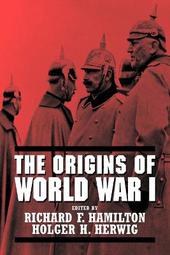
|
The Origins of World War I
Paperback / softback
Main Details
Description
This work poses a straightforward - yet at the same time perplexing - question about World War I: Why did it happen? Several of the oft-cited causes are reviewed and discussed. The argument of the alliance systems is inadequate, lacking relevance or compelling force. The arguments of mass demands, those focusing on nationalism, militarism and social Darwinism, it is argued, are insufficient, lacking indications of frequency, intensity, and process (how they influenced the various decisions). The work focuses on decision-making, on the choices made by small coteries, in Austria-Hungary, Germany, Russia, France, Britain and elsewhere. The decisions made later by leaders in Japan, the Ottoman Empire, Italy, the Balkans, and the United States are also explored. The final chapters review the 'basic causes' once again. An alternative position is advanced, one focused on elites and coteries, their backgrounds and training, and on their unique agendas.
ReviewsReview of the hardback: '[A] fine work ... Each of the chapters in this work examines how a particular country came to the decision to go to war, and will thus make welcome teaching vehicles for students and lecturers alike.' History Today Review of the hardback: 'Goldman's excellent book ... provides a clearly argued analysis both of the key role that women played in Soviet industrialisation and of the tensions between the different actors involved in that project - ordinary workers, managers, Party and trade union officials, and women activists.' The Economic History Review Review of the hardback: 'This is a fascinating book whose coherence and focus, together with helpful introductions and conclusions by the editors, offers comparative conclusions about the major and minor powers' motivations for joining the war.' War in History
|